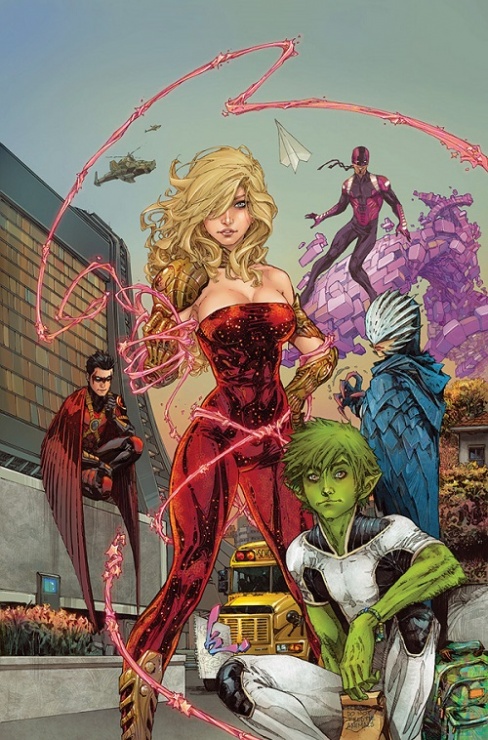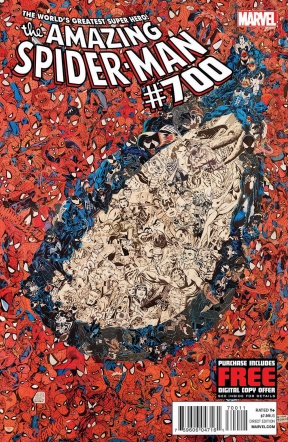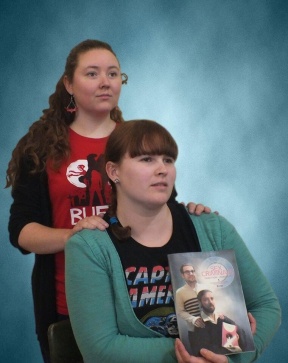
I love comics.
I really do.
A comic is an amazing thing, in both its ability to tell stories that no other medium can and to achieve a scope and scale that isn’t held back by anything but the imagination and gifts of the people telling the story. Both as an art form and a narrative, comics have about as much potential to connect with those who consume it as anything else, if for only those reasons.
Yet comics always feel like they are stuck in neutral, recycling the same limited audience they’ve always had, even in boom times like we’ve seen in the past few years. People lament the reach the medium has, searching for reasons as to why it simply cannot connect with potential new readers, yet never really finding an answer that feels right.
And I think a big reason why is when things are bad, no one really wants to look into the mirror to find the reasons why.
Take Janelle Asselin’s recent experiences for example. Asselin, a woman who has had a long career in comics working for DC and Disney as an editor, wrote an article for Comic Book Resources about her interpretation of Kenneth Rocafort’s cover for “Teen Titans” #1, taking it to task not only for its rather unrealistic take on the female teenage form but also for its poor design and rather mind boggling perspective, among other reasons.
Her take was hardly unfair, and she even made sure it was known that she wasn’t entirely putting the onus on Rocafort. Given her history in comics, it’s not beyond her to be able to analyze the craft (or lack thereof) of the cover, yet shortly after the article was released Asselin was assailed by people who did far worse than just think she was wrong or one who was unqualified to pass such a judgment.
No, that wasn’t nearly the worst of it.
There were men who openly threatened her with rape.
And that’s astonishing to me. That someone, faced with a person who disagrees with their perspective on something as simple as a cover to “Teen Titans” (a comic that hasn’t been good in I don’t even know how long), would respond by threatening to sexually assault someone else.
Maybe the most tragic thing about it all is the casual, almost expectant way Asselin reacted to it with. As she said in her Tumblr post:
At first I wasn’t going to talk about the rape threats because honestly, most of the women I know with a solid online presence get them regularly. This is just a thing we are forced to deal with.
When you look at women who commented on the story like Gail Simone, much of the surprise was built around the idea that people thought this was a new thing. That’s when you realize that this is something that is as pervasive in comics as rising cover prices.

But of course it goes beyond that. As Brian Michael Bendis said on Tumblr, it’s not just the women creators who are showered with negative messages from “fans” because of their personal feelings on a comic. Look at long-time Spider-Man scribe Dan Slott, a man who is genuinely one of the nicest, most gregarious people I’ve ever met. When he had the audacity to “kill” a fictional character in Peter Parker, Slott received death threats and had to worry about going out in public.
These people are amongst the greatest proponents of comics. These are the creators who were fans first, who craft stories we love and who tell friends and family that comics are an amazing medium that everyone should love and enjoy.
And “fans” threaten them with unimaginably terrible acts.
Now imagine how those people that they’ve been trying to convince to read comics felt when they heard the treatment of their friends by the people who are supposed to love comics best. Why would anyone want to get involved with comics if they hear about the hateful vitriol that’s spouted from the people that are supposed to love the medium most?
Continued belowEven when you leave the world of threats on industry professional’s lives and bodies, you hear about experiences like the one Noelle Stevenson had at a comic book retailer, where she was treated like a complete joke when she was just trying to buy comics from them. The lack of respect she received, simply because she was a woman, would be enough for most potential readers to drop their interest in buying comics in a heartbeat.
And it’s not just women who have these experiences. My nephew, once an interested neophyte comic reader, was berated and mocked when he went into a shop simply because he had the audacity of wanting to buy a “Deadpool” comic. Nothing else. He just happened to want to buy a comic that the people who worked in the shop didn’t deem good enough, and they made sure he felt their disdain.
He didn’t buy that “Deadpool” comic, or any comic that day.
Like Asselin’s response to the threats of sexual assault, when my nephew told me of that I sort of shrugged and thought, “sounds like a comic shop experience.”
But how messed up is that? That these people who are meant to be the true lovers of the comic form can’t even treat either regular or potential new readers with any common human decency? And that the people who hear about it – like myself – do nothing about it? That’s on me, and if that happened today, I’d like to think I’d have done something about it.
That’s not to say that this is a universal thing. Many comic retailers are very good people who love comics, and they want to share their love with the potential readers – regardless of who and what they might be – who come into their shop.

And comic fans can be amongst the most passionate types of fans I’ve ever found, and sometimes that passion is brought to life in the most beautiful of ways. Look at the community “Sex Criminals” (“Brimpers”) and “Captain Marvel” (“Carol Corps”) have created around their books; those fans are fonts of pure, unbridled enthusiasm.
It doesn’t matter if they’re recreating comic covers or talking about the time they found porn in the woods or having incredibly positive events at Emerald City ComiCon, they are what we should all hope to amount to as fans of the medium. They take their love of the books that matter to them and they externalize that in all of the best ways. They make people want to find out why they love those books so much.
Which is why it makes it so frustrating that some comic fans take that love and turn it into the worst form of negativity, the type that is designed to take others down to their level and to make them feel pain in one way or another.
That’s not to say this is only a problem in comics. As Image Comics Publisher Eric Stephenson said recently in an interview I did with him at ECCC:
And it’s not…you’re kind of defining it by comic book culture, but it’s really just culture. It’s everywhere. You can go to music forums and movie/TV…if you read the comments on news articles, the ridiculous things that people say. It’s just like, “why did you feel you needed to share that with the world?” It’s just stupid.
So why should comics be any different? It’s the same type of people all over everywhere online. That’s the frustrating thing. You get people who instead of using this in a constructive way, you get on there and talk shit about something. I guess they enjoy that on a certain level.
The Internet as a whole provides people who prefer to tear others down instead of being evangelists for the things they are interested in with a soapbox to stand on, giving them a place to say every little awful thing that pops in their head. The anonymity it provides can turn a person – a coworker, a friend or the person you sat next to on a bus – into someone that they hardly resemble in their day-to-day life (as immortalized in a rather brilliant “Penny Arcade” comic). You see this everywhere, from gaming websites to movie forums to political article comment threads, which may be the worst of the worst.
Continued belowSo it’s not just comics. It’s a problem that exists everywhere. It’s like Stephenson asked rhetorically, “why should comics be any different?”
As I said before, sometimes it just feels different because we’re such a small industry. It’s like when you live in a small town where everyone knows each other and someone does something awful. You can’t escape it. It becomes omnipresent. It becomes who you are. It becomes your scarlet letter. Your brand to wear.
The way we behave informs others and creates expectations for those around us, either individually or as an industry, and it makes the stigma that surrounds the world of comics in the minds of many all the more real.
And if we, as the fans of the medium, can’t even deal with each others opinions about comics without threatening to kill, rape or publicly embarrass each other, then how do we expect comics to continue to survive or, god forbid, to grow?
I don’t know. I really don’t. As Andy Khouri suggested in his excellent piece on the subject at Comics Alliance:
Remember what we were taught. Remember what we’re supposed to believe in. How can we love these stories and characters so much as to make them a part of ourselves, a piece of our identities as boys and now as men, and behave any differently? Doing otherwise is doing it wrong.
He’s completely right. We all know we’re supposed to act better – to be better – but these things never change.
And that’s the biggest thing to me.
Nothing seems to change. Deep down, everyone knows that being good, or just not being an asshole, is a good idea. Yet somehow, even after we share articles and thoughts about how we should just be decent, the group never seems to learn its lesson.
I don’t know how to fix that. I really don’t. I don’t know if any of us do, but I wish it would change because I don’t want to see the same things happening six months from now. I don’t want this to be something that is always part of comics.
It really shouldn’t take us this long to grow up.






